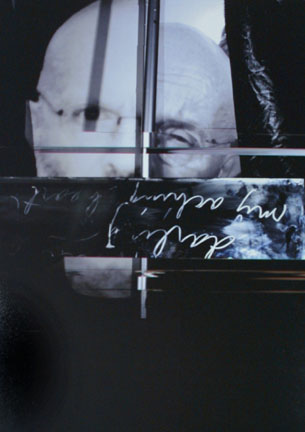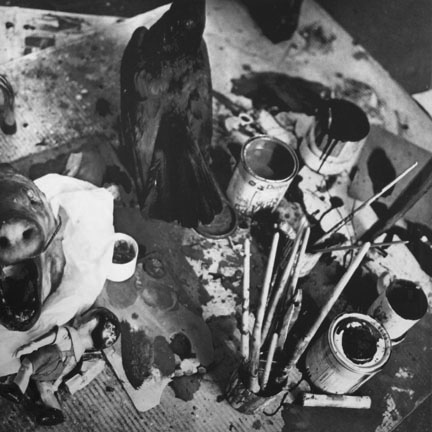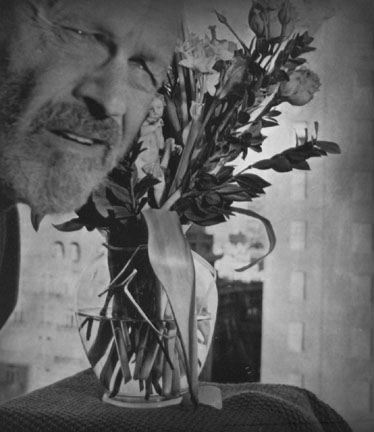About the Photographer
Dine, Jim
American, b. 1935
"I don't use Photoshop with all the things you can do. I photograph and then I preview. I preview all day until I get it right, but I get it right by changing the objects. I compose the objects, I change the words, I leave a pentimento of the language on the wall, I paint the wall black, then I use white chalk then I'll paint over it or I'll wash it off." — Jim Dine from Jim Dine in Italia, 2000
Famous for his technically masterful paintings, prints, sculptures, etchings, and drawings of commonplace objects and perhaps best-known as a father of the Pop Art movement, Jim Dine makes photographs that reflect, among other things, his interests in poetry and Abstract Expressionism. Though he had previous experience using photographs as source material, Dine did not begin to produce photographs until 1996, many decades into his artistic career.
Certain stock elements appear regularly in Dine's intensely psychological, often troubling, photographs: including a stuffed crow (in The White Tape for instance), a Pinocchio-like doll boy, Dine's own face, and writing on walls. His layered and often collage-like photographic compositions are not wholly dissimilar from his work in other media, and his emphasis on symbolism and text extend a 40-year interest in language and semiotics. Working with an 8×10 view camera with a digital back and outputting with either the well-established photogravure print process or more cutting-edge digital technology, Dine surveys more than a century of photographic processes while never conceding his interest in the hand of the maker.
Raised in Cincinnati, Ohio, Jim Dine attended Ohio University, Athens (BFA, 1957). In the early 1960s he staged the first "Happenings," experimental performance art works, with Claes Oldenburg and Allan Kaprow at the Judson Gallery in New York. Between 1960 and 1965, he served as a visiting professor at various universities, from Yale University to Oberlin College. His photographs, paintings, and sculptures have been displayed at leading museums worldwide, including the Musée du Louvre, Paris; the Museum of Modern Art, New York; and the Art Institute of Chicago. Dine's works are also held in the permanent collections of over sixty international museums, including the Tate Gallery, London; Metropolitan Museum of Art, New York; and the National Gallery of Art, Washington, DC. Dine currently divides his time between New York and London.




